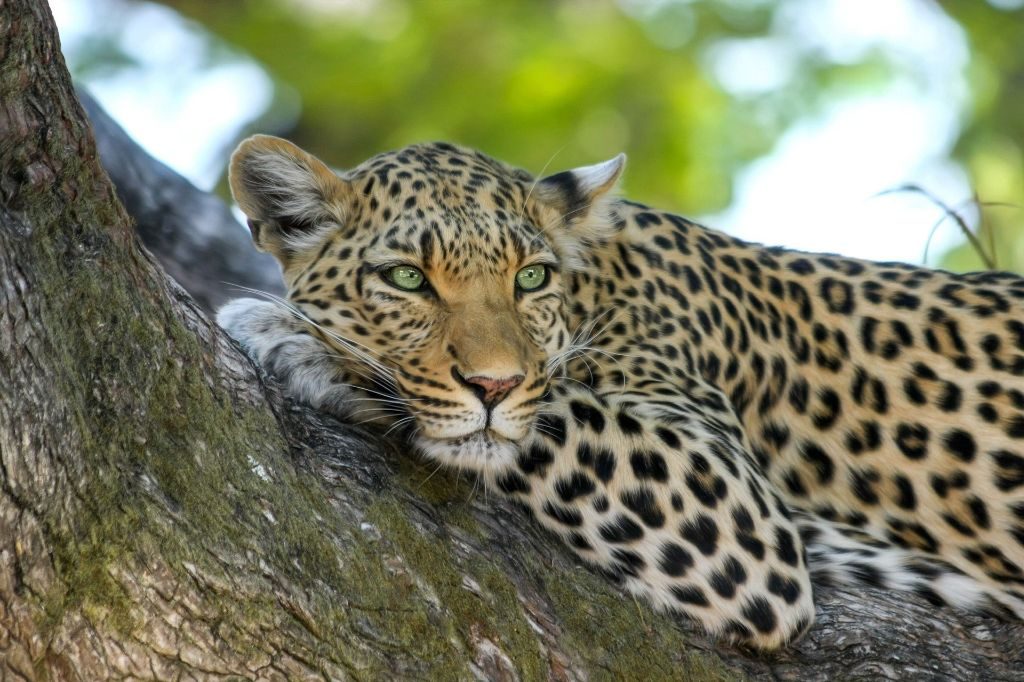The park is particularly famous for its primate population, which includes chimpanzees, Ruwenzori colobus monkeys, and L’Hoest’s monkeys. Its rich biodiversity also encompasses over 300 bird species, making it a haven for birdwatchers. The park’s diverse ecosystems, from montane forests to bamboo groves, provide a unique setting for various outdoor activities and adventures.
Canopy Walkway: Experience the thrill of walking 50 meters above the forest floor on East Africa’s only canopy walkway, offering stunning views of the lush landscape.
Chimpanzee Tracking: Join guided tours to track and observe chimpanzees in their natural habitat, a once-in-a-lifetime wildlife experience.
Waterfalls: Visit the beautiful Isumo Waterfall, nestled deep within the forest, for a refreshing and picturesque escape.
Bird Watching: With over 300 bird species, including several endemics, Nyungwe is a birdwatcher’s paradise. Don’t miss the chance to spot the Great Blue Turaco and the Red-collared Mountain-babbler.
- Guided Hikes: Explore over 130 kilometers of well-maintained trails, ranging from short nature walks to challenging hikes.
- Primate Tracking: Beyond chimpanzees, track other primate species like the Angolan colobus monkeys in large troops.
- Cultural Tours: Engage with local communities and learn about traditional Rwandan culture and practices.
- Nature Walks: Enjoy leisurely walks through the forest to learn about the park’s flora and fauna from knowledgeable guides.
- Tea Plantation Tours: Visit nearby tea plantations to see how tea is cultivated and processed, and enjoy a tasting session.
- Community Experiences: Participate in community-based tourism initiatives that support local livelihoods and provide authentic cultural exchanges.
- Traditional Crafts: Discover local artisans’ work, including basket weaving and pottery, which reflect Rwanda’s vibrant cultural heritage.
- Cuisine: Taste traditional Rwandan dishes at local eateries, such as brochettes, plantains, and the famous Rwandan coffee.
- Best Time to Visit: The dry seasons (June to September and December to February) are ideal for trekking and wildlife viewing.
- What to Pack: Essentials include hiking boots, rain gear, insect repellent, and binoculars.
- Health and Safety: Ensure you have necessary vaccinations and carry a basic first aid kit. Be aware of the park’s guidelines and follow the ranger’s instructions.
- Accessibility: The park is accessible via road from Kigali (approximately a 5-6 hour drive) or by domestic flights to nearby airports.
- Luxury Lodges: Experience world-class comfort and service at luxury lodges that offer stunning views and close proximity to the park’s attractions.
- Eco-Lodges and Camps: Stay in eco-friendly lodges and camps that provide a unique opportunity to connect with nature while supporting conservation efforts.
- Budget Options: Affordable guesthouses and hostels are available for budget-conscious travelers.
Featured Hotels
Stay tuned for our curated list of the best hotels and lodges near Nyungwe Forest National Park, ensuring a comfortable and memorable stay.
Sample Itineraries
3-Day Nyungwe Adventure: Day 1: Arrival and canopy walkway tour. Day 2: Chimpanzee tracking and nature walk. Day 3: Visit Isumo Waterfall, departure.
5-Day Wildlife and Culture Experience: Day 1: Arrival and guided hike. Day 2: Chimpanzee tracking and bird watching. Day 3: Cultural tour and tea plantation visit. Day 4: Nature walk and community visit. Day 5: Leisure morning, departure.
7-Day Ultimate Nyungwe Safari: Day 1-2: Arrival, canopy walkway, and nature hikes. Day 3: Chimpanzee tracking. Day 4-5: Explore various trails and waterfalls. Day 6: Cultural tours and relaxation. Day 7: Departure.
Allow our Moran AI to find the perfect itinerary for you!
Our Featured Itineraries
Explore our detailed itineraries that include activities, accommodations, and tips to help you make the most of your visit to Nyungwe Forest National Park.

5-Day Safari Package: Tarangire, Serengeti, and Gombe
Overview of Conservation Efforts
Nyungwe Forest is critical for biodiversity conservation, water catchment, and climate regulation. Ongoing efforts aim to protect its unique ecosystems and wildlife.
Key Conservation Initiatives
- Anti-Poaching Programs: Measures to combat poaching and protect endangered species.
- Habitat Restoration: Projects focused on reforestation and maintaining the health of the forest.
- Community Engagement: Involving local communities in conservation through education and sustainable practices.
Conservation Organizations Involved
- Wildlife Conservation Society (WCS): [Website Link]
- Rwanda Development Board (RDB): [Website Link]
- African Wildlife Foundation (AWF): [Website Link]

